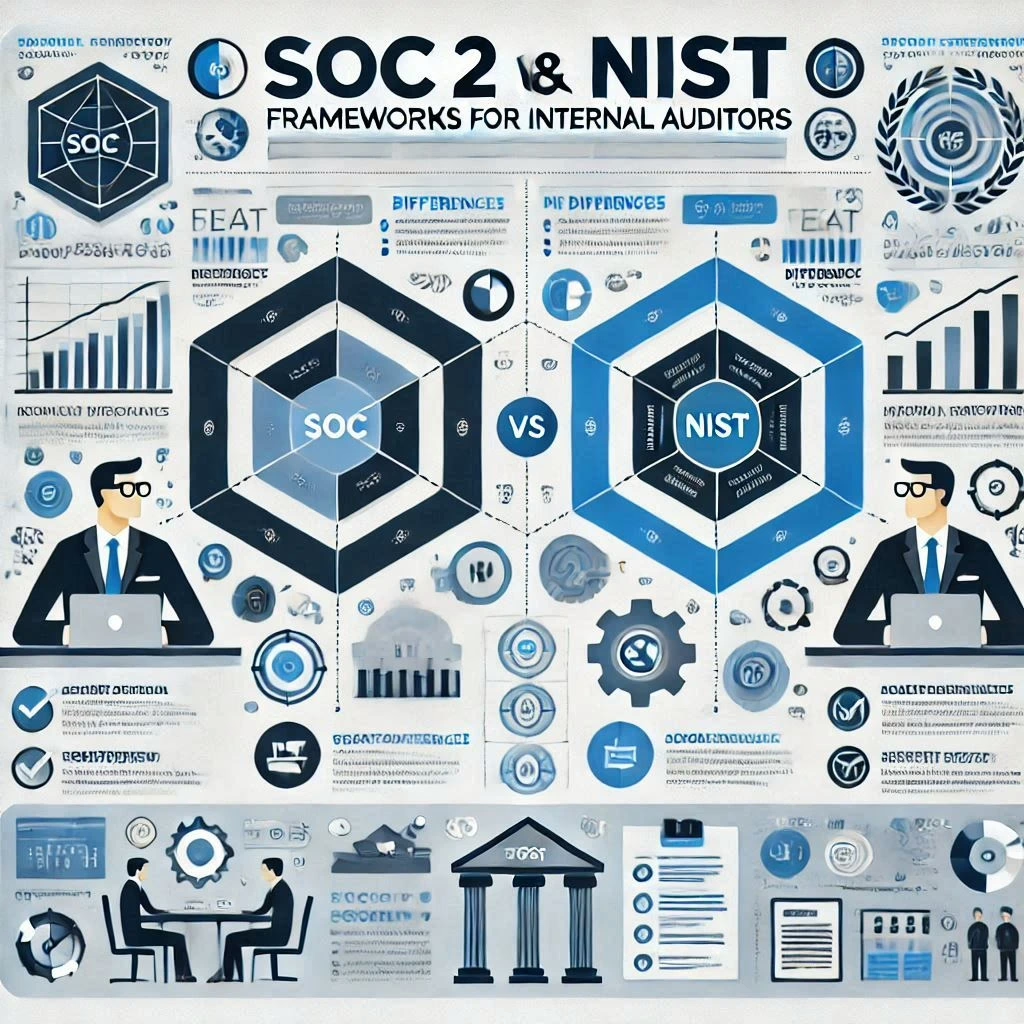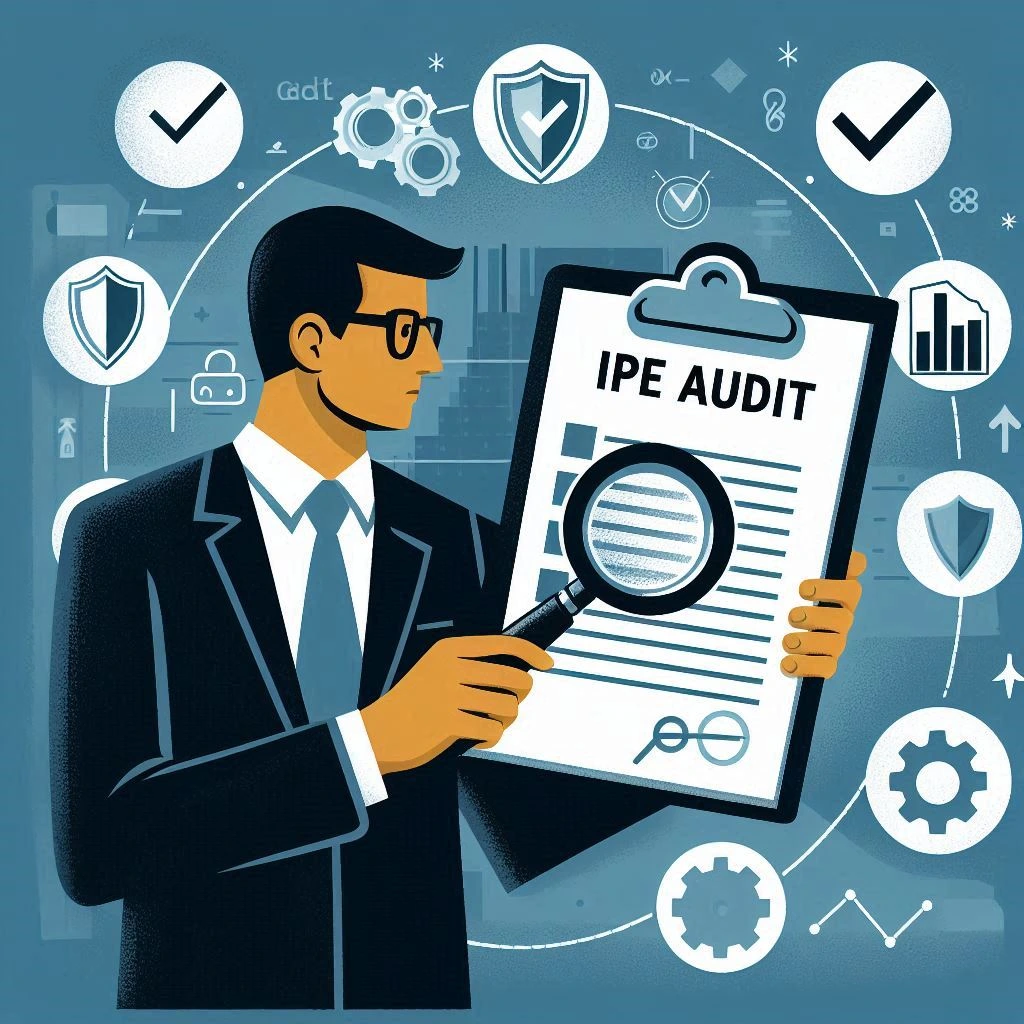Internal auditing is an independent, objective assurance and consulting activity designed to add value and improve an organization’s operations. It brings a systematic, disciplined approach to evaluate and enhance the effectiveness of risk management, control, and governance processes. Internal auditors assess various aspects, including emerging technologies, global issues, ethics, quality, economy, and efficiency. Their goal is to ensure that internal controls are adequate to mitigate risks and that governance processes are effective and efficient. In summary, internal audit plays a crucial role in helping organizations achieve their objectives by ensuring effective risk management, strong controls, and sound governance processes.

Comparative Analysis SOC 2 and SOX Frameworks Explained
Introduction Understanding the various frameworks that govern financial reporting and data security is crucial for professionals tasked with ensuring organizational integrity. Two prominent frameworks that often come into discussion are…

The Role of Internships Gaining Experience Toward CPA Certification
Introduction The journey to becoming a Certified Public Accountant (CPA) is often perceived as a path that requires a formal education in accounting. However, the landscape of accounting is evolving,…

How to Customize Your PBC List for Different Audit Types
Introduction to PBC Lists A Prepared By Client (PBC) list is a crucial tool in the internal audit process, serving as a comprehensive checklist of documents and information that auditors…

Best Practices for Conducting IPE Audits A Step-by-Step Approach
Introduction to IPE Audits The concept of Information Produced by the Entity (IPE) plays a pivotal role in ensuring the integrity and effectiveness of audit processes. IPE refers to any…

Integrating Artificial Intelligence in Your Operational Risk Assessment Template
Introduction to Operational Risk Assessment Operational risk assessment is a critical component of internal audit processes, focusing on the potential risks that can arise from a company's operational activities. Understanding…

SOC 2 vs NIST Understanding the Key Differences for Internal Auditors
Introduction Two of the most prominent frameworks that internal auditors and compliance officers often encounter are SOC 2 and the NIST Cybersecurity Framework (CSF). Defining SOC 2 and NIST Frameworks…

From Data to Insights The Internal Audit Analytics Journey
Introduction to Internal Audit Analytics Internal audit analytics is a critical component of modern auditing practices, leveraging data to enhance the effectiveness and efficiency of internal audits. This section aims…

From Auditing to Accounting The Best CPA Exam Order for Internal Auditors
Introduction In the dynamic landscape of finance and accounting, the Certified Public Accountant (CPA) certification stands as a hallmark of professional excellence. For internal auditors, pursuing CPA certification not only…

Aligning IPE Audits with Risk Management A Strategic Approach
Introduction to IPE Audits The concept of Information Produced by the Entity (IPE) audits plays a crucial role in ensuring the integrity and reliability of data used in decision-making processes.…

How Long Does the CPA Process Take Insights from Industry Leaders
Introduction The Certified Public Accountant (CPA) designation is a prestigious credential that holds significant importance in the field of internal audit. For professionals in this domain, obtaining a CPA not…









